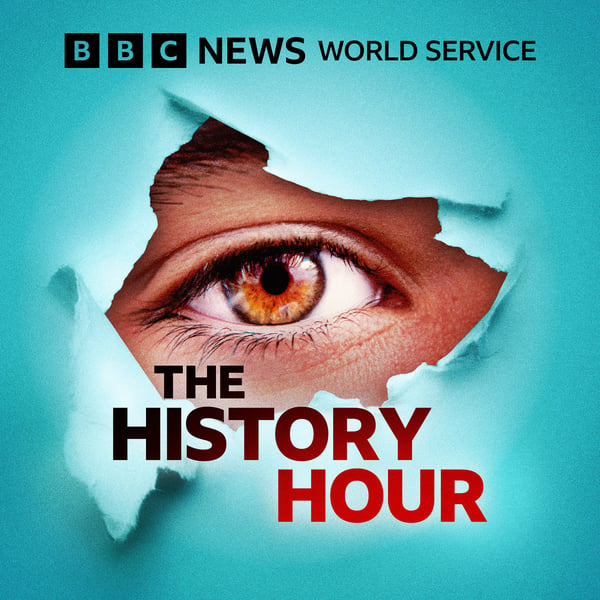Chinese history
The History Hour
BBC
4.4 • 879 Ratings
🗓️ 23 March 2024
⏱️ 52 minutes
🧾️ Download transcript
Summary
Max Pearson presents a collection of this week’s Witness History episodes from the BBC World Service.
To mark 50 years since the discovery of the Terracotta Army, we're exploring modern Chinese history.
We hear from the man who helped to modernise the Chinese language by creating a new writing system. It's called Pinyin and it used the Roman alphabet to help simplify Chinese characters into words.
Our expert guest is the writer, Mark O'Neill, whose book 'The Man Who Made China a Literate Nation' forms the basis of a great discussion about historical language changes throughout history.
Plus, a first hand experience of life in labour camps during Mao Zedong’s cultural revolution and the women forced into sexual slavery by the Japanese Imperial army during the 1930s. This programme contains disturbing content.
Contributors: Mark O'Neill - writer Zhou Youguang - linguist Jingyu Li - victim of Mao Zedong's labour camps Peng Zhuying - survivor of sexual slavery Yuan Zhongyi - archaeologist Dr Li Xiuzhen - archaeologist Simon Napier-Bell - manager of Wham
(Photo: Terracotta Army. Credit: Getty Images)
Transcript
Click on a timestamp to play from that location
| 0:00.0 | Hi Namalanta Combo here with some very exciting news. |
| 0:04.0 | Dear Daughter is back for a new series. |
| 0:07.0 | I'm putting together a handbook to life for daughters everywhere |
| 0:10.0 | full of stories and advice to help navigate life. |
| 0:13.0 | That's Dear Daughter from the BBC World Service. |
| 0:16.0 | Find it wherever you get your BBC podcast. Hello and welcome to the History Hour Podcast from the BBC World Service with me Max Pearson, |
| 0:31.6 | the past brought to life by those who were there. |
| 0:34.6 | This week, personal memories from China's past, including a survivor on being forced to be |
| 0:40.3 | a so-called comfort woman during Japan's occupation in the 1930s and 40s. |
| 0:45.4 | I think it's important to let the world know what happened to me and to others because we need to remember |
| 0:51.8 | history. We need to know what the Japanese invaders did. |
| 0:56.0 | Plus surviving re-education in China's cultural revolution, the length one family went to in order to protect their daughter. |
| 1:03.4 | My mom saw a little shirt for me from my dad's old shirt. |
| 1:09.1 | They said that when people ask you you tell them your boy. |
| 1:14.0 | Also 50 years on from the discovery of the Tarracotta Army and WAM in China. |
| 1:20.0 | That's all coming up later in the podcast. |
| 1:22.0 | But we're going to begin with a moment in the development of China's education system. |
| 1:27.0 | In 1958, a brand new writing system was introduced called Pinion. |
| 1:32.0 | It used the Roman alphabet to help simplify Chinese |
| 1:35.7 | characters into words. The mastermind behind Pinion was a professor called Joo Yorguang. His work led to a rapid expansion of literacy in China, which in turn has |
| 1:46.6 | changed the country's fortunes dramatically. Matt Pintas has been going through archive interviews |
| 1:51.8 | to piece together, Jaws' life. |
... |
Transcript will be available on the free plan in -373 days. Upgrade to see the full transcript now.
Disclaimer: The podcast and artwork embedded on this page are from BBC, and are the property of its owner and not affiliated with or endorsed by Tapesearch.
Generated transcripts are the property of BBC and are distributed freely under the Fair Use doctrine. Transcripts generated by Tapesearch are not guaranteed to be accurate.
Copyright © Tapesearch 2025.

